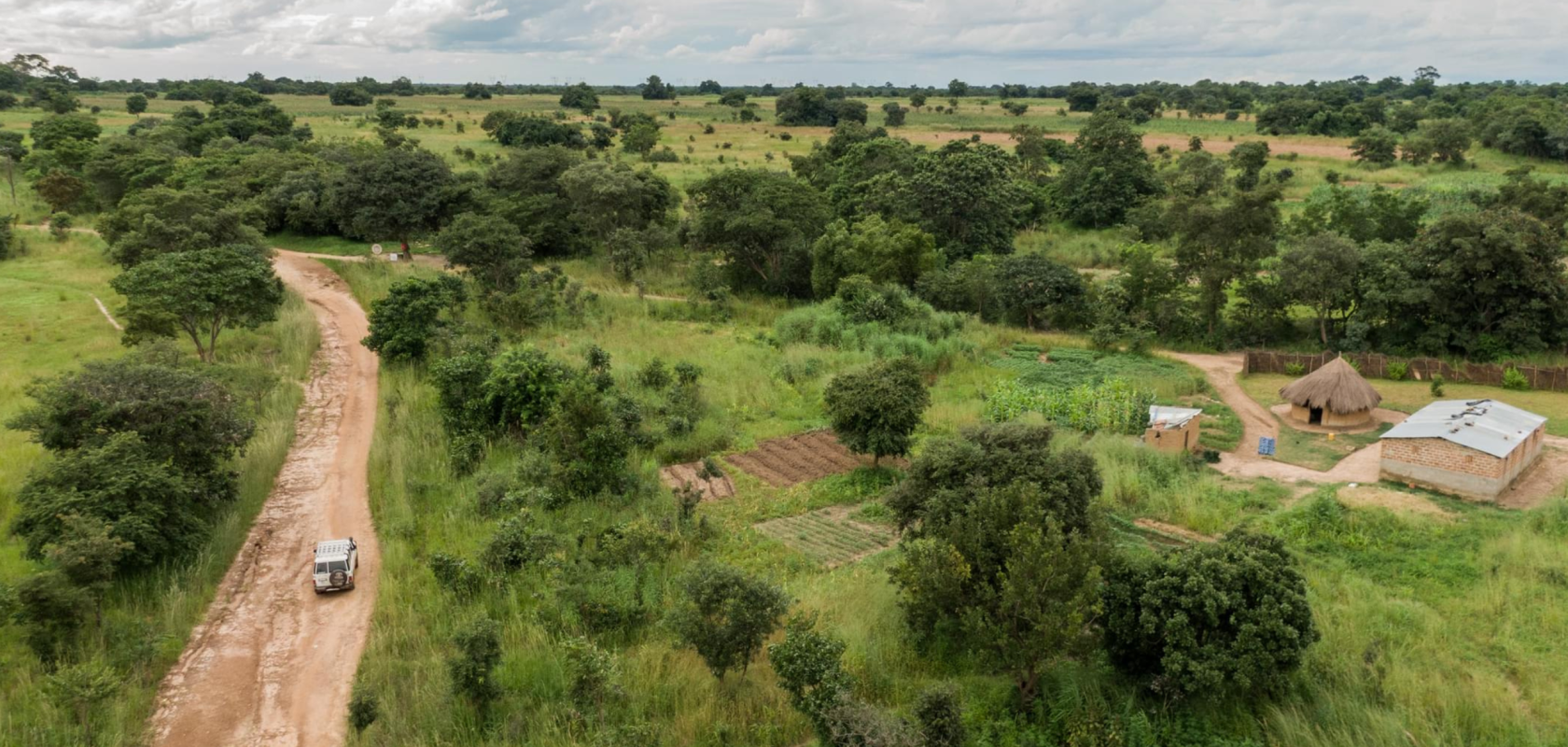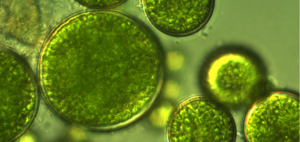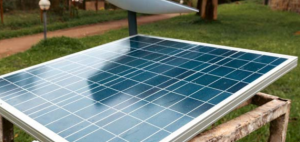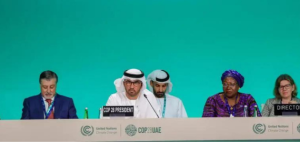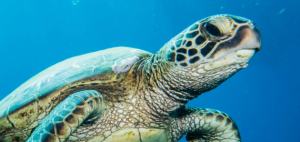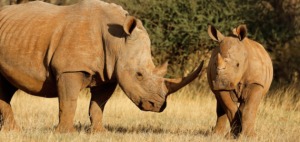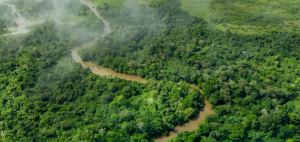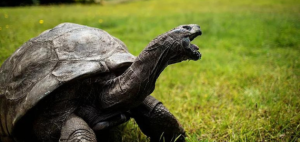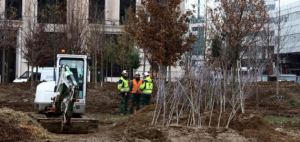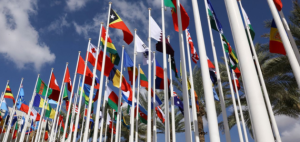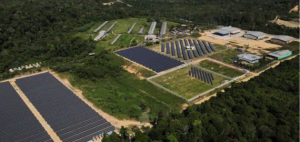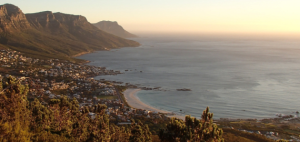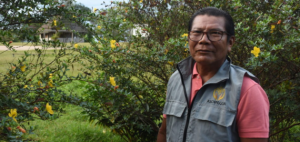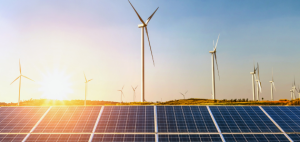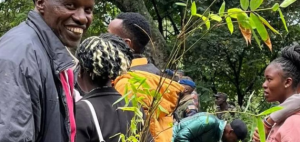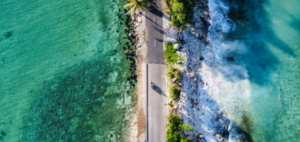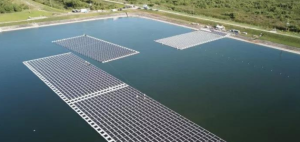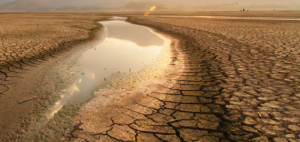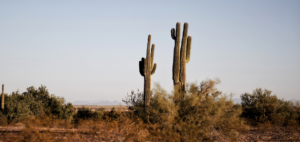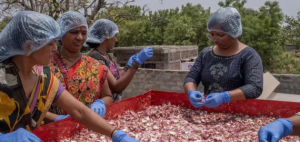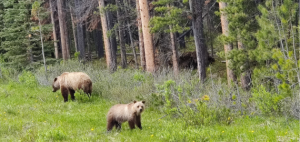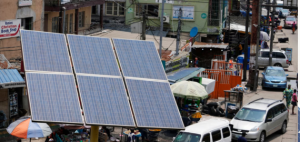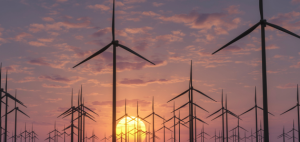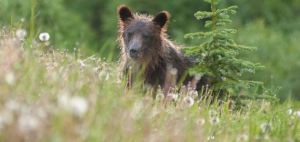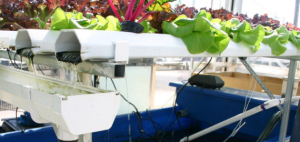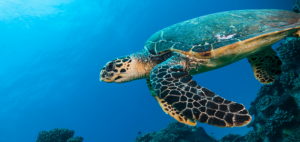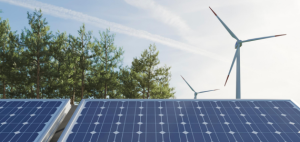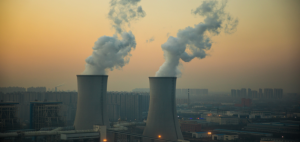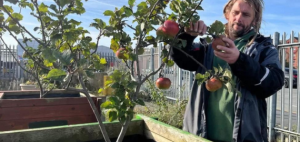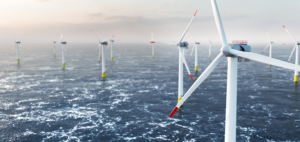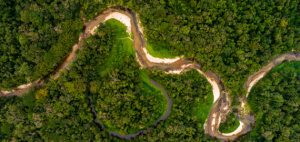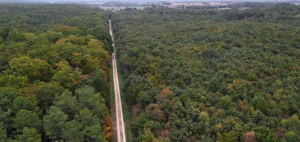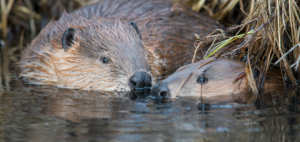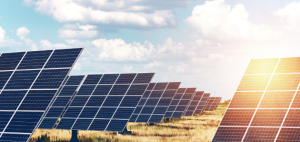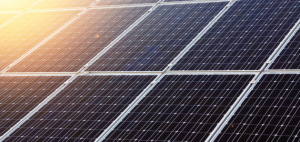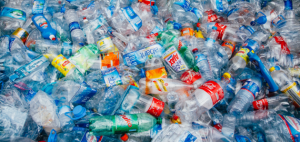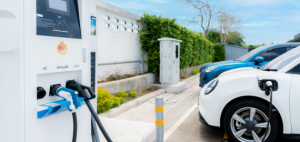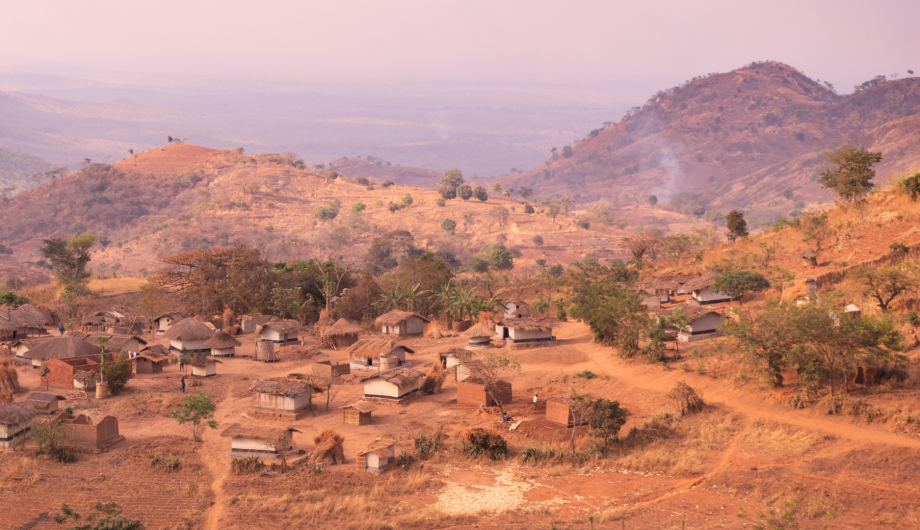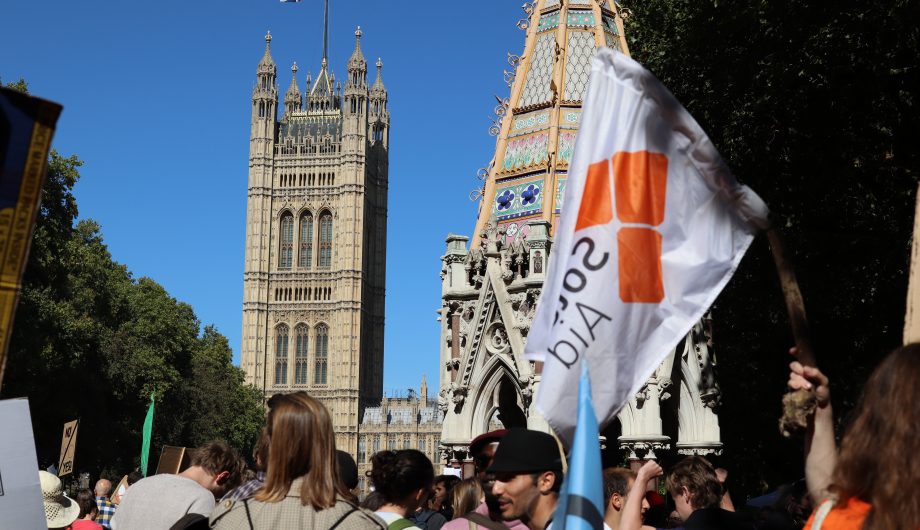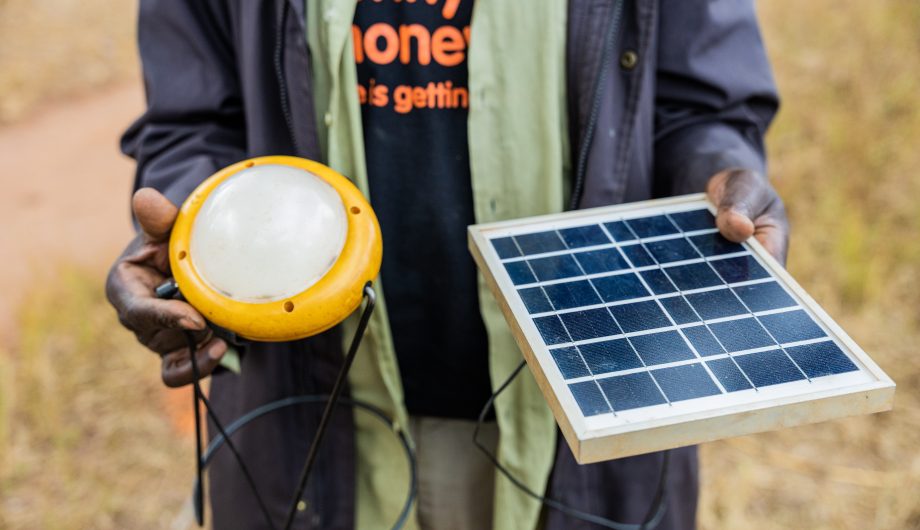With the ongoing news about the increasing impacts of climate change, mounting biodiversity loss, geopolitical tensions and social inequalities, we believe it’s important to highlight the wins of collective action to ensure we don’t lose hope of the future we are working towards.
That’s why every week we post five wins from across the world that show we’re making progress towards a sustainable future. From record renewable energy projects, to circular construction materials, there’s signs of hope at every corner we turn. Scroll for a daily dose of good news.
December
December 22nd:
Sponges that can soak-up microplastics
Researchers have developed a revolutionary microplastic sponge that quickly attracts and absorbs over 85% of plastic particles from water, offering a new, effective tool in the battle against rampant microplastic pollution in our oceans and waterways. This innovative solution holds great potential for large-scale cleanup efforts, signalling a major step forward in environmental protection.
Biologist uses algae to create biodegradable solar panels
23-year-old Mexican biotechnologist Adán Ramirez Sánchez has created Intelligent Solar Biopanels, a green energy solution that uses microalgae and carbon nanoparticles to generate clean electricity while purifying the air. These biodegradable, semi-transparent panels harness photosynthesis, are aesthetically pleasing, and can be placed on various surfaces, offering a unique combination of energy savings, environmental health, and architectural innovation.
First aircraft to run on renewable energy
Ecotricity’s Ecojet, the first aircraft powered by renewable energy, represents a significant step in aviation sustainability, aiming to reduce CO2 emissions to zero by retrofitting conventional planes with hydrogen-electric powertrains. Set to start UK flights in 2024, this pioneering project aligns with the broader industry’s push towards greener flying, incorporating advanced technology and sustainable practices in operations.
Solar power to provide internet to schools in Rwanda
In Rwanda, a partnership between the government and Ignite Power is set to revolutionise education by using solar power to provide internet connectivity to schools, especially in remote areas. This initiative, featuring Ignite Power’s LinX solar-based satellite terminals, will bridge the digital divide and empower students with essential tools for learning in a digitally evolving world.
US Government set to ban logging in old-growth forests
President Joe Biden’s administration plans to implement a ban on logging in old-growth forests across the US by 2025, a move designed to protect over 32 million acres of ancient, carbon-storing trees. This significant environmental decision, however, hinges on the outcome of the 2024 presidential election, determining its future impact.
December 14th:
Landmark deal to ‘transition away’ from fossil fuels
The COP28 climate summit concluded with a groundbreaking agreement among nearly 200 countries to collectively transition away from fossil fuels, a pivotal move towards limiting global warming and achieving net zero emissions by 2050. This historic deal, celebrated for its global commitment, is a major stride in international climate action efforts, and signals the start of the end of the fossil fuel era.
The US to invest £275 million in funding for wildlife-friendly roads
The US Department of Transportation is launching a £275 million initiative for wildlife crossings to enhance road safety and protect animals. This investment, part of the 2021 Infrastructure Investment and Jobs Act, aims to support over 1,000 projects nationwide, including new overpasses, underpasses, and habitat restoration.
Endangered sea turtles rescued and rehabilitated
Fifty-two Kemp’s ridley sea turtles, rescued from frigid Cape Cod waters, were flown to Florida for critical rehabilitation. Safely harboured in several aquariums, these endangered turtles represent a significant effort in marine conservation.
2,000 southern white rhinos set to be released across Africa
About 2,000 southern white rhinos, approximately 12-15% of Africa’s remaining population, are set to be released from a private breeding facility into protected African areas. This massive conservation effort, spearheaded by African Parks, aims to bolster the species’ numbers and restore their ecological role across the continent.
Sahara circular gardens stop desertification
In the Sahara Desert, a remarkable transformation is underway through the rollout of circular gardens, an innovative response to tackle desertification and enhance food security. These gardens, characterised by their circular design, feature a central water source that ensures efficient irrigation, transforming barren desert landscapes into productive, fertile oases. This approach not only tackles the pressing issue of land degradation but also provides sustainable agricultural solutions in one of the world’s most challenging environments.
December 7th:
Development banks set-up ‘Debt-for-Nature’ task force
Major development banks and climate funds have formed a global task force to expand “debt-for-nature” swaps, helping developing countries cut debt in exchange for environmental protection. This initiative, led by organizations like the Inter-American Development Bank, aims to enhance the impact of these deals, previously successful in Belize and the Galapagos, in both conservation and financial sectors.
Jonathan the Giant Tortoise turns 191
Jonathan, the world’s oldest living land animal at 191 years old, continues to thrive on St Helena, outliving historic events from the reign of Queen Victoria to two world wars. Despite being virtually blind and lacking a sense of smell, he remains active and healthy, even featured on the local five pence coin.
Australia ends finance of overseas fossil fuel expansion
Australia has made a significant move at the Cop28 climate summit, committing to stop international financing of fossil fuels and joining 40 other countries in the clean energy transition partnership. This decision to phase out support for coal, oil, and gas projects abroad within a year highlights the country’s shift towards more sustainable practices, though it has sparked calls for similar action on domestic fossil fuel subsidies.
Kenyan Giant Pangolins brought back from the brink
In Kenya, conservationists and farmers are joining forces to protect the endangered giant ground pangolin, once thought extinct. Efforts include creating safe spaces in the Nyakweri forest and raising awareness to preserve these unique, nocturnal animals, critical for maintaining ecological balance.
Paris to plant first urban forest
Paris is set to create its first “urban forest” on a busy roundabout by June next year, part of Mayor Anne Hidalgo’s vision to transform the city into a greener, garden city. This project, starting at Place de Catalogne, is just one part of Paris’ larger green plan, which includes planting 170,000 trees by 2026 and reducing car space in favour of eco-friendly transport.
December 1st:
Loss and Damage fund adopted by all parties at COP28
At the COP28, a groundbreaking agreement was reached to establish the long anticipated loss and damage fund, which will help the world’s poorest and most vulnerable countries affected by climate disasters. With initial contributions from countries including the UAE, Germany, the UK, and the US, the fund is a significant step toward addressing climate justice.
Brazil signs on to global climate deal to triple renewable energy
Brazil has joined an international agreement, backed by the EU, US and UAE, to triple global renewable energy by 2030 and reduce reliance on coal, ahead of the COP28 climate negotiations. Already a leader in renewable energy, with over 80% of its electricity from renewable sources, Brazil’s commitment to the “Global Renewables and Energy Efficiency Targets Pledge” reinforces its support for a clean energy future.
South Africa set to invest £63 billion in energy transition
South Africa has unveiled an $80 billion investment plan to transition from fossil fuels to renewable energy over the next five years, a move set to reshape its economy and energy landscape. The plan includes significant projects like ArcelorMittal SA’s green hydrogen steel production and Hive Energy’s green ammonia facility, aiming to create a greener energy sector and tackle the current energy crisis.
Delio is restoring wild bee populations in the Amazon
In Colombia’s Amazon, Delio de Jesús Suárez Gómez, from the Indigenous Tucano community, is sustainably nurturing bee populations by integrating traditional knowledge and scientific approaches. He’s cultivating specific trees to attract bees, managing wooden hives for stingless species, and protecting the colonies from natural threats, creating a thriving ecosystem where bees support food production and community livelihood through pollination and honey sales.
EU hits historic low in fossil fuel electricity generation
In 2022, the EU reached a record low in electricity generation from fossil fuels, with these sources accounting for only 15% of total electricity. This significant reduction, fueled by the decline of coal and rise in renewables, aligns with a broader, accelerating shift towards a carbon-neutral power sector in the EU.
November
November 23rd:
Over 60 Countries Back Pledge to Triple Renewable Energy Usage
Major economies like Nigeria, South Africa and Australia are supporting a deal led by the European Union, United States and United Arab Emirates to triple renewable energy usage by 2030, and reduce reliance on coal. This pledge, set to be a main topic of discussion at the upcoming COP28 climate negotiations, aims to double global energy efficiency improvements and phase out coal power.
Kenyans get tree planting holiday to plant 100 million seedlings
Kenyans have been granted a special holiday to plant 100 million trees, contributing to the government’s ambitious target of planting 15 billion trees in 10 years to tackle climate change. Citizens are encouraged to plant at least two seedlings each, with the government providing free seedlings from public nurseries and encouraging tree planting on private land.
Australia offers climate refuge to Tuvalu citizens
A residency deal between Australia and Tuvalu has been agreed, offering up to 280 Tuvaluans residency rights each year, highlighting the urgent need to reduce global emissions. This agreement, a response to Tuvalu’s vulnerability to rising sea levels, is seen as a crucial but temporary solution, with calls for more ambitious climate action to protect Pacific island nations.
Floating solar panels can supply clean energy in areas where space is limited
In response to land scarcity and the need for renewable energy, Del-Co Water Company in Ohio is building a floating solar panel grid on its reservoir, a growing trend in the US and globally. This technology not only generates clean energy but also offers additional benefits like reducing algae growth and water evaporation. Floating solar requires less space than land-based systems and is becoming increasingly popular to solving the challenge of competing land needs.
Indonesia invests heavily in renewable energy plan
Indonesia has unveiled a nearly £16 billion renewable energy investment plan, supported by international financing led by the US and Japan, to boost its power sector’s decarbonisation and increase renewable energy use to 44% by 2030. Despite concerns about the heavy reliance on commercial loans, this ambitious plan under the Just Energy Transition Partnership aims to significantly reduce carbon emissions and positions Indonesia as a leader in renewable energy transition, second only to Vietnam’s similar initiative.
November 9th:
‘Loss and Damage’ Deal Agreed by Governments, Which Supports Countries Most Affected by Climate Change
During intense discussions in Abu Dhabi, global leaders mapped out a pioneering ‘loss and damage’ fund aimed at supporting countries hardest hit by climate disasters, with initial management overseen by the World Bank. This groundbreaking plan, awaiting official endorsement at the UN’s forthcoming climate summit, represents a significant advancement in international cooperation on climate resilience. The agreement promises to channel crucial financial aid to the most climate-vulnerable communities, bolstering their ability to recover and adapt to escalating climate impacts.
Coca-Cola, Danone and Nestle called out for greenwashing claims
Coca-Cola, Danone, and Nestlé are under legal scrutiny for allegedly overstating the sustainability of their plastic water bottles, with accusations stating that the products are not fully made from recycled materials as advertised. Consumer and environmental organisations claim these companies engage in greenwashing, misguiding eco-conscious consumers with claims of “100% recycled” or “100% recyclable” bottles, while the reality of recycling depends on various factors like local infrastructure. The European Commission has been called to investigate, which could lead to national authorities demanding corrections or imposing fines if the claims are found misleading.
Texas is Building Solar Projects Faster Than any Other State in America
Texas is poised to overtake California as the leader in utility-scale solar capacity, with the State rapidly increasing its solar buildouts. Although California led with approximately 1,000 more megawatts at the beginning of 2023, Texas has been doubling its capacity annually and has a larger planned capacity for the year. Nationwide, the U.S. solar market is set to install a record 29.1 gigawatts of new solar capacity in 2023, demonstrating significant growth despite recent challenges.
The five winners of the annual Earthshot Prize Announced
At the Earthshot Prize ceremony, five initiatives from industries including electric vehicle battery manufacturing, sustainable agriculture, and ocean protection were awarded £1 million each for their contributions to environmental sustainability and efforts to combat climate change.
Digital Mapping is Being Used to Protect Wildlife Where Human Populations Expand on Natural Habitats
In response to growing wildlife-human conflicts, such as bear attacks in Italy, researchers are employing digital mapping to facilitate coexistence. Innovative tools like the Bayesian network model integrate local insights and spatial data to produce maps that help manage and reduce conflicts between humans and large carnivores. These methods not only aim to mitigate immediate dangers but also offer long-term strategies for wildlife conservation and human safety.
November 3rd:
Solar projects in Africa are set to Receive a £30 Million Boost in Funding
The International Solar Alliance, led by India, plans to fund solar projects in Africa with a $35 million investment, focusing on mini-grids and rooftop installations to aid the continent’s energy transition. At their New Delhi summit, representatives from 116 countries discussed strategies to shift the continent’s reliance from fossil fuels to solar power, with a key goal of electrifying the 733 million people worldwide without electricity.
Greece sets out Plans for it’s First off-shore Wind Farms
Greece is taking a leap towards a cleaner future, laying out an ambitious blueprint for its inaugural offshore wind farms aimed at harnessing the robust winds of the Aegean, Ionian, and Mediterranean seas. This pioneering move, aimed at powering up with 2 gigawatts of wind energy by 2030, marks a significant stride toward breaking free from the grip of fossil fuels. With a keen eye on preserving the natural and cultural tapestry of the seas, Greece’s plan is a beacon of hope for energy sovereignty and a testament to its commitment to being a green energy exporter in the years to come.
Locals set up Wildlife Corridors in Montana to Protect Wildlife
In Montana, the spike in human settlements is pressing the need for wildlife corridors to ensure safe passage for animals like grizzlies, disrupted by the expanding Highway 2. Recognizing this, locals are rallying around innovative solutions like a new distillery to minimize attractants and support the creation of wildlife corridors, aiming to balance growing human populations with the needs of native wildlife.
Oko Farms Proves Urban Aquaponics Farming
Oko Farms in New York City is championing sustainable urban food production through aquaponics, where plants and fish thrive together in a closed-loop system. The fish waste provides an organic nutrient source for the plants, and the plants, in turn, clean the water for the fish. This sustainable method conserves water and space, making it ideal for urban settings where these resources are limited.
Leaders set-out Plan to Save the World’s Oceans
Global leaders initiated ‘Ocean Breakthroughs’ at the IUCN conference, targeting a transformation in ocean conservation and sustainable maritime industries by 2030. The plan targets five initiatives – marine conservation, ocean energy, shipping, aquatic food, and coastal tourism – in an attempt to restore and protect the world’s oceans. These turning points are strategic sectors where accelerated action and investment can contribute significantly to a resilient, nature-positive, and net-zero future by 2050.
October
27th October:
Half of the World is Past Their peak in Fossil Fuel use
Half the world’s economies have surpassed their peak usage of fossil fuels for energy, marking a significant shift towards cleaner alternatives. These 107 economies, representing 38% of global electricity demand, have seen a nearly 20% drop in emissions over the past decade, highlighting the declining reliance on fossil fuels. The increase in global fossil generation slowed to 1.2% in 2022, below the decade’s 1.6% average annual growth, indicating a possible global peak. This change is largely due to a tripling in wind and solar electricity generation from 2015 to 2022, offsetting fossil fuel use and pointing towards a future of reduced power sector emissions.
Indigenous Seed Collectors to Restore 12.5 million Hectares of Native Vegetation
In a big stride towards ecological restoration, 150 Indigenous seed collectors from Amazon’s Reseba network embarked on a journey to learn from the seasoned Xingu Seed Network in Mato Grosso. This grassroots collaboration, crucial for Brazil’s ambitious reforestation goal of 12.5 million hectares by 2030, comes amid the absence of government-led initiatives. These networks form the backbone of Brazil’s restoration efforts, tackling the deforestation driven by agricultural expansion.
Businesses Urge Government to Speed up the Phase-Out Fossil Fuels
Over 125 businesses, under the “Fossil to Clean” initiative, are urging governments to end fossil fuel reliance and intensify clean energy use, emphasising the urgent need for clear policies and decisive action. These companies are urging for specific measures such as fossil fuel phase-outs, increased renewable energy commitments, and support for equitable transitions globally, aiming to influence the agenda at the upcoming COP28 and drive significant change in tackling climate change.
Hull to Introduce “Right to Grow” Initiative
Hull is set to be the UK’s first city to introduce a “right to grow” initiative, allowing residents to grow food on unused council properties. The initiative is expected to enhance community bonding and provide fresh produce, set amidst a backdrop of industrial surroundings. The project will show innovative urban agriculture, using rainwater for irrigation, and show potential community benefits like improved mental health and social inclusion, all the while supporting the city’s progressive food-growing policies. With this movement gaining momentum, Hull’s pioneering project could set a precedent for transforming neglected spaces nationwide into community-focused, agricultural havens.
UK Meat Consumption Plummets to Historic Lows
UK meat consumption has hit its lowest since the 1970s, driven by factors such as the cost of living crisis, health awareness, and environmental concerns. Economic strains and growing ecological concerns are steering people towards cheaper or plant-based diets. The environmental impact of meat production, underscored by studies on its ecological footprint, has further propelled this shift. This shift in eating habits signals a profound change in cultural attitudes toward food consumption.
20th October:
Scotland’s Biggest Offshore Wind Farm at Full Power
Scotland’s largest offshore wind farm, Seagreen, is now fully operational, providing clean energy to power two-thirds of Scotland’s homes. This £3 billion project with 114 turbines will remove over two million tonnes of CO2 annually, contributing to the UK’s shift away from fossil fuels.
Drifting Crustaceans Could Slow Climate Change
Researchers at the University of Exeter suggest that copepods, tiny drifting crustaceans, may hold the key to slowing climate change by storing substantial amounts of carbon in the ocean. The Natural Environment Research Council (NERC) has funded three new projects to delve deeper into this potential climate solution.
Amazon Deforestation Continues to Slow Despite Severe Drought
Deforestation in the Brazilian Amazon is decreasing, despite a severe drought, according to Brazil’s INPE. In September, their monitoring system DETER recorded 390 square miles of forest clearing, a 57% reduction compared to the previous year, indicating progress despite challenging conditions.
Mosaic Forest in France is Being Adapted for Rising Temperatures
In France’s Moulière massif, a novel climate adaptation strategy is at play, known as the “mosaic forest.” Covering 4,200 hectares, this forest is actively diversifying its tree species, incorporating both native and foreign varieties to prepare for a potential +4°C temperature increase by 2100, as part of France’s proactive approach to climate change.
Glitter ban Officially Goes Into Effect Across European Union
The European Union has officially implemented a glitter ban, targeting non-biodegradable plastic glitter to curb microplastic pollution. As of October 18, glitter, often used in makeup products, cannot be bought or sold across the 27 European countries, but environmentally-friendly alternatives remain permissible. Additionally, makeup and nail polish products must bear a label indicating the presence of microplastics from October 17, 2031, to October 16, 2035, to remain on the market, reinforcing the EU’s commitment to environmental sustainability.
6th October:
UK Emissions Fall 3.4% in 2022
In 2022 the UK’s greenhouse gas emissions fell by 3.4%, and coal energy use dropped to its lowest levels since 1757. The UK’s emissions have now fallen nine out of the past 10 years, and are 49% below 1990 levels, despite the economy growing by 75%.
Mini Forests Combat Rising Temperatures in São Paulo
Youth, educators and indigenous communities have planted 10,000 trees as part of a mini forest project, to tackle the rising temperatures in São Paulo, Brazil. By integrating trees & natural life into a city, it helps to reduce the urban heat island effect exacerbated by climate change. The mini forest project can serve as a blueprint for other cities to adopt as the world adapts to affects of climate change.
Baby beaver born in London for the first time in 400 years
For the first time in 400 years, a baby beaver has been born in the wild in London, thanks to the efforts of a reintroduction programme. Enfield council began reintroducing beavers in 2022 as part of a rewilding and flood management project. By introducing beavers back to the capital, it will help protect local homes from downstream flooding, and encourage biodiversity back to the area…a win-win for both people & nature.
Australia Rejoins UN Climate Fund
Australia has announced it will rejoin the UN Climate Fund, after the government pulled out in 2018. The UN Green Climate Fund (GCF) was set-up in 2010, and is extremely important as it helps poorer countries cope with the climate crisis, through financing adaptation and mitigation projects, with funds contributed by rich countries. The GCF has approved $11USD billion worth of projects in 129 countries.
Global Carbon Emissions From Electricity Predicted to Peak This Year
Thanks to the rapid surge of growth in renewable energy, carbon emissions from the electricity sector are expected to peak this year. Solar power grew by 16% in the first half of 2023, with carbon emissions plateauing. The findings in the report by Thinktank, Ember, the world is close to reaching the peak of the electricity sector’s carbon emissions, and they expected to begin to fall in line with global climate targets.
September
29th September:
India Votes to Reserve a Third of Seats in Parliament for Women
In a historic move, India’s lower house of parliament passed a bill to reserve a third of seats in parliament for women representatives. Currently women only hold 13% of seats, with the new set to almost triple that number. The new law will greatly improve women’s representation in politics and could be transformational for the country.
Brazil Supreme Court rules to protect Indigenous Land Rights
Brazil’s Supreme Court has blocked an anti-Indigenous bill that would have dramatically stripped back Indigenous land rights. This is a HUGE win for both the indigenous groups in South America and biodiversity, as indigenous communities protect 80% of biodiversity on the planet.
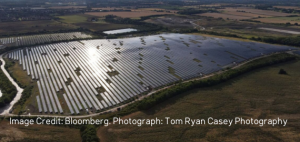
UK’s Biggest Solar Farm has Been Built on an old Landfill
Next month, the UK’s largest solar farm is set to go live. The site will provide enough energy to power 17,000 homes with clean, renewable electricity and has been built by repurposing an old landfill, solving the challenge of space often faced by clean energy providers.
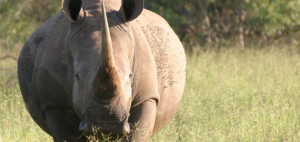
Rhino Numbers are Rebounding
The endangered species is showing signs that all is not lost, thanks to the work of conservationists worldwide. Global figures released by conservation group IUCN African Rhino Specialist Group, showed rhino numbers increased to 27,000 in 2022, up from 26,272 in the previous year. For the first time since 2012, southern white rhino numbers increased, as did Black Rhino populations despite a rise in poaching.
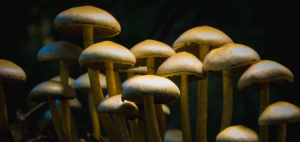
Mushrooms can Breakdown Construction material
With the construction industry accounting for one-third of global waste, new solutions are needed to address this ecological menace sustainably. Fungi can break down almost anything, and US start-up Mycocycle is training it to break down construction materials and repurpose the waste into reusable materials. Mycelium, a network of root-like fungal threads, creates an enzyme that can degrade man-mad chemicals.
13th September:
UK Government Secures 95 new Renewable Energy Projects
UK Government secures 95 new renewable energy projects, as part of its flagship energy scheme. The new initiatives will deliver enough clean energy to power the equivalent of 2 million homes, through solar, onshore wind, tidal & geothermal initiatives.
Researchers Discover Infinitely Recyclable Bio-Plastic
Researchers at Berkeley Lab create an indefinitely recyclable bio-plastic that’s made using a modified E.Coli virus. PDK (Polydiketoenamine) has widespread applications, and is a non-toxic material. This fully circular plastic is sustainable, as building blocks used to make the material are biologically based.
1-in-5 Cars Sold in August was Fully Electric
Record numbers of electric vehicles were sold in the UK in August, with electric models accounting for 15% of all cars sold. Petrol and diesel cars market share also fell to an historic low, with their smallest share for the last 20 years.

Engineers use old Coffee Grounds Instead of Sand to Make Concrete
Researchers from RMIT University in Melbourne, Australia have infused tons of coffee ground waste with concrete. The coffee grounds are turned into biochar before being placed in the concrete mix. By using coffee grounds, it replaces the use of the finite source of sand usually used to strengthen concrete, and avoids the waste ending up in landfill.
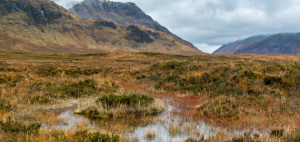 UK Government Provides £16 Million to Fund Peatland Restoration
UK Government Provides £16 Million to Fund Peatland Restoration
The UK Government announces £16 million in funding to restore peatlands across England. Restoring peatlands will provide vital habitat for wildlife, tackle climate change and act as a natural carbon sink.
